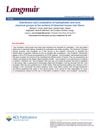 17 citations,
July 2019 in “Scientific reports”
17 citations,
July 2019 in “Scientific reports” Surface and internal treatments can help prevent hair lipid loss during washing.
[object Object]  11 citations,
August 2020 in “Dermatologic therapy”
11 citations,
August 2020 in “Dermatologic therapy” The document concludes that mesotherapy can be effective for skin and hair treatments, but more research is needed to confirm its safety and effectiveness.
 5 citations,
December 1942 in “Journal of the American Medical Association”
5 citations,
December 1942 in “Journal of the American Medical Association” Choline and biotin are important for liver health and preventing certain deficiencies in animals, and more research is needed to understand their benefits in humans.
 2 citations,
July 2018 in “Elsevier eBooks”
2 citations,
July 2018 in “Elsevier eBooks” Some supplements may help with hair loss, but there's not enough strong evidence to recommend them without doctor advice.
 1 citations,
June 2023 in “Biomolecules & therapeutics”
1 citations,
June 2023 in “Biomolecules & therapeutics” Nitric oxide is important for skin functions and both helps protect against and contributes to skin inflammation and sensitization.
 1 citations,
January 2013 in “Springer eBooks”
1 citations,
January 2013 in “Springer eBooks” Cosmeceuticals may benefit skin health but need more research for efficacy and safety confirmation.
 November 2021 in “Journal of pharmaceutical research international”
November 2021 in “Journal of pharmaceutical research international” Herbal depilatories are safer and cause fewer side effects than chemical ones for hair removal.
 September 2016 in “Journal of Dermatological Science”
September 2016 in “Journal of Dermatological Science” A gene mutation worsens skin irritation in mice due to a lack of certain fats.
 91 citations,
April 2017 in “Diabetes & Metabolic Syndrome: Clinical Research and Reviews”
91 citations,
April 2017 in “Diabetes & Metabolic Syndrome: Clinical Research and Reviews” Eating fewer calories, less sugar and refined carbs, and more low-glycemic and omega-3 rich foods can help manage PCOS symptoms.
 68 citations,
July 2011 in “Journal of Biochemistry/The journal of biochemistry”
68 citations,
July 2011 in “Journal of Biochemistry/The journal of biochemistry” New LPA receptors (LPA4, LPA5, LPA6) have diverse roles in the body.
[object Object]  37 citations,
January 2019 in “Food science & nutrition”
37 citations,
January 2019 in “Food science & nutrition” Bergamot may improve heart health, skin conditions, and mood, but more research is needed to confirm these benefits.
 36 citations,
June 2019 in “eLife”
36 citations,
June 2019 in “eLife” The study developed a tool to predict how gut microbes process foods and drugs, showing that similar compounds often share metabolic pathways and effects.
 36 citations,
October 2014 in “Langmuir”
36 citations,
October 2014 in “Langmuir” Bleaching hair removes its protective top layer and exposes more hydrophilic groups, changing its chemical surface and affecting how it interacts with products.
 28 citations,
May 2020 in “BMC plant biology”
28 citations,
May 2020 in “BMC plant biology” The study concluded that three enzymes are important for plant development by affecting sugar composition and calcium binding in plants.
 28 citations,
January 2012 in “Biological & pharmaceutical bulletin”
28 citations,
January 2012 in “Biological & pharmaceutical bulletin” Hairless protein can both repress and activate vitamin D receptor functions, affecting gene regulation.
 15 citations,
September 2018 in “Dermatologic therapy”
15 citations,
September 2018 in “Dermatologic therapy” Both emollients effectively reduced itching and improved skin moisture in xerotic eczema.
 11 citations,
July 2021 in “Physiologia Plantarum”
11 citations,
July 2021 in “Physiologia Plantarum” SIPHL1 from tomato enhances plants' response to low phosphate levels.
 11 citations,
August 1997 in “Expert Opinion on Therapeutic Patents”
11 citations,
August 1997 in “Expert Opinion on Therapeutic Patents” Many potential alopecia treatments need more testing to confirm they promote acceptable hair growth with minimal side effects.
 8 citations,
May 2017 in “Current traditional medicine”
8 citations,
May 2017 in “Current traditional medicine” Stinging nettle has compounds that help with joint pain, arthritis, and prostate issues.
 4 citations,
January 2021 in “Skin appendage disorders”
4 citations,
January 2021 in “Skin appendage disorders” Hair straightening can damage hair and pose health risks, including exposure to carcinogens and hair loss.
 3 citations,
March 2021 in “International journal of pharmaceutical sciences review and research”
3 citations,
March 2021 in “International journal of pharmaceutical sciences review and research” Licorice has many health benefits but more research is needed to fully understand them.
 3 citations,
February 2008 in “Basic and clinical dermatology”
3 citations,
February 2008 in “Basic and clinical dermatology” Telogen Effluvium is a hair loss condition where treatment involves identifying and managing its triggers.
 2 citations,
December 2022 in “bioRxiv (Cold Spring Harbor Laboratory)”
2 citations,
December 2022 in “bioRxiv (Cold Spring Harbor Laboratory)” miR-29 is a key factor that accelerates aging.
 1 citations,
December 2021 in “Pakistan biomedical journal”
1 citations,
December 2021 in “Pakistan biomedical journal” Eating certain seeds may help reduce symptoms of Polycystic Ovary Syndrome.
 1 citations,
May 2017 in “Asian journal of medical sciences”
1 citations,
May 2017 in “Asian journal of medical sciences” The dietary supplement significantly improved skin, nails, and hair in older adults.
 1 citations,
January 2015 in “Journal of nutrition & health”
1 citations,
January 2015 in “Journal of nutrition & health” Fish oil improves skin health in people with diabetes and high cholesterol.
 January 2025 in “Cellular & Molecular Biology Letters”
January 2025 in “Cellular & Molecular Biology Letters” Eicosanoids are crucial for skin health, and targeting their pathways may help treat skin conditions.

Human hair keratins can self-assemble and support cell growth, useful for biomedical applications.
 January 2020 in “Journal of Pharmacognosy and Phytochemistry”
January 2020 in “Journal of Pharmacognosy and Phytochemistry” The VCO-based herbal hair tonic is effective, safe for hair loss treatment, and can be mass-produced.
 January 2016 in “SpringerBriefs in bioengineering”
January 2016 in “SpringerBriefs in bioengineering” Genetic defects and UV radiation cause skin damage and aging.






























